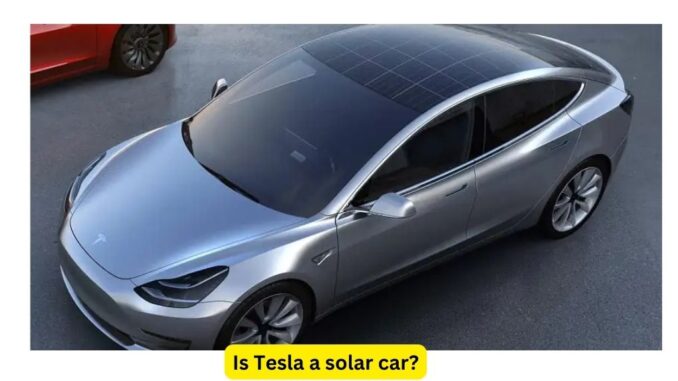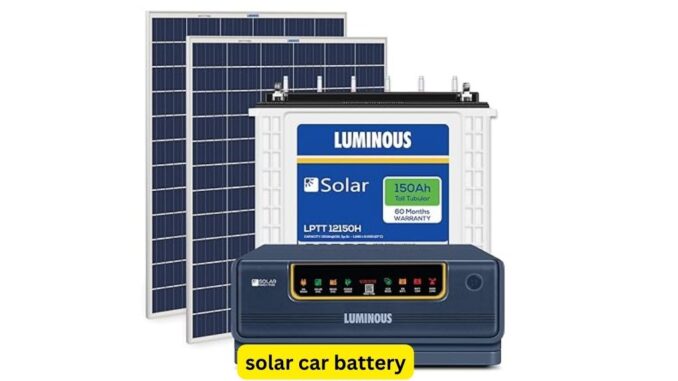What is the Tesla a solar car?
Is Tesla a solar car?
The Rise of Electric Vehicles
While Tesla is widely recognized as a pioneer in the electric vehicle (EV) industry, it is important to note that they are not the sole players in this rapidly growing market. The rise of EVs goes beyond just one company; it represents a larger shift towards sustainability and clean energy solutions. In recent years, major automakers such as BMW, Chevrolet, and Nissan have all entered the EV market with their own offerings, giving consumers more options than ever before.
One key driver behind the rise of electric vehicles is the increasing concern for climate change and air pollution. With traditional combustion engine vehicles being a significant contributor to greenhouse gas emissions, governments around the world have been implementing stricter regulations on vehicle emissions. This has created demand for alternative fuel sources such as electricity. Additionally, advancements in battery technology have made electric vehicles more practical and accessible to consumers by improving their driving range and reducing charging times.
The future of electric vehicles looks promising with ongoing efforts to develop charging infrastructure globally. Governments are investing in building charging stations along highways and in urban areas, making long-distance travel feasible for EV owners. Moreover, collaboration between automobile manufacturers and energy companies is creating innovative solutions like vehicle-to-grid technology that allows cars to feed excess electricity back into the grid during peak hours.
Overall, while Tesla has played a crucial role in putting electric vehicles on the map with its sleek designs and cutting-edge technology, it is important to recognize that they are just one part of an electrification movement happening across the automotive industry worldwide. As more players
Tesla’s Impact on the Automotive Industry
Tesla’s impact on the automotive industry cannot be understated. Since its founding in 2003, the company has revolutionized the way we think about electric vehicles (EVs) and has become a major disruptor in an industry that has been dominated by traditional gasoline-powered cars for over a century.
One of Tesla’s most significant contributions to the automotive sector is its focus on sustainability. While other car manufacturers have dabbled in EVs, Tesla has gone all-in on creating a sustainable future. By producing high-quality, stylish electric vehicles that can compete with their gasoline counterparts in terms of performance and range, Tesla has shown the world that EVs are not only environmentally friendly but also practical options for everyday use.
In addition to its commitment to sustainability, Tesla’s impact can also be seen in its focus on innovation. From pioneering advancements in battery technology to introducing autonomous driving features like Autopilot, Tesla has pushed the boundaries of what is possible within the automotive industry. This dedication to innovation has not only forced other manufacturers to play catch-up but has also inspired them to invest heavily in research and development of their own electric models.
In conclusion, Tesla’s impact on the automotive industry extends far beyond just being another car manufacturer. The company’s emphasis on sustainability and innovation has significantly influenced how we view electric vehicles and accelerated their adoption worldwide. As more companies follow in Tesla’s footsteps, it is clear that we are witnessing a fundamental shift towards a greener and more technologically advanced future for transportation.
Tesla’s Solar Integration
Tesla’s foray into solar integration has been a game-changer for the renewable energy industry. While Tesla is primarily known for its electric vehicles, it has successfully expanded its business to include solar panels and batteries. This move not only complements their existing car technology but also positions them as a holistic solution provider in the clean energy sector.
One of the key advantages of Tesla’s solar integration is its ability to create an end-to-end energy ecosystem. By combining their solar panels with Tesla Powerwall, a home battery system, homeowners can store excess energy generated from the sun during the day and use it at night or during power outages. This level of self-sufficiency not only reduces reliance on traditional grid systems but also makes renewable energy more accessible and reliable for millions of people globally.
Moreover, by integrating their solar technology with their electric vehicle lineup, Tesla is paving the way for sustainable transportation powered by renewable resources. With innovative features like the Solar Roof that seamlessly blends into residential architecture while harnessing sunlight, Tesla demonstrates its commitment to making solar power aesthetically pleasing and highly efficient. This convergence of electric mobility and solar power represents a significant step towards achieving a greener future where cars are not just reliant on fossil fuels but can be charged using clean energy harvested from the sun.
In conclusion, whereas many automakers focus solely on creating electric vehicles, Tesla stands out by incorporating solar integration into every aspect of their business. By providing an end-to-end energy ecosystem that combines solar panels with storage solutions and
How Does Solar Power Affect Tesla’s Performance?
With its sleek design, cutting-edge technology, and impressive acceleration, Tesla has become synonymous with high-performance electric vehicles. However, what many people may not realize is that solar power plays a significant role in the overall performance of these cars. Tesla vehicles can be charged using solar panels, which convert sunlight into electricity. This not only allows for a more eco-friendly driving experience but also contributes to the enhanced efficiency and range of Tesla cars.
By harnessing the power of the sun to charge their vehicles, Tesla owners can significantly reduce their reliance on traditional electrical grids. This reduces carbon emissions and helps create a more sustainable future. Additionally, because solar energy is renewable and abundant, it provides an unlimited source of power for an electric vehicle like a Tesla. This means that as long as there is sunlight available, drivers can continue to charge their cars without worrying about running out of fuel or relying on charging stations.
The use of solar power also enhances the overall performance of Tesla vehicles by maximizing their range. Solar panels not only provide energy directly to the car’s battery but can also be used to power other onboard systems such as air conditioning or heated seats. By utilizing solar energy for these auxiliary functions instead of drawing power from the battery alone, drivers are able to preserve more energy for driving longer distances. Thus, making Teslas even more efficient and capable on roads around the world.
The Future of Solar-Powered Cars
As technology continues to advance at an unprecedented rate, the future of solar-powered cars looks increasingly promising. While Tesla has made significant strides in electric vehicles, it is not yet a fully solar car. However, experts believe that the integration of solar panels into electric vehicles could revolutionize the automotive industry.
One of the main challenges for solar-powered cars is increasing their efficiency and range. Currently, most solar panels on cars are limited in size due to space constraints. However, engineers are working on developing new materials and technologies that can enhance both the power output and flexibility of these panels. By creating more efficient solar cells and incorporating them into different parts of the vehicle, such as its roof or body, it may become possible to generate enough energy from sunlight to power an entire car.
Furthermore, advancements in battery technology will play a crucial role in making solar-powered cars a viable option for consumers. Lithium-ion batteries used in most electric vehicles today have limitations when it comes to storage capacity and charging speed. Researchers are exploring alternative battery materials such as solid-state batteries that can provide longer-range capabilities while being more resistant to degradation over time. These advancements would allow solar-powered cars to harness energy during daylight hours and store it efficiently for use even after sunset.
In conclusion, although Tesla is not currently considered a fully solar car company, the future holds great promise for integrating solar panels into electric vehicles. Continued research and development efforts aimed at improving panel efficiency and battery technology will likely result in more practical and attractive options for consumers seeking
Conclusion: Is Tesla Truly a Solar Car?
In conclusion, while Tesla vehicles do offer some solar-powered features, it is not accurate to categorize them as fully solar cars. While the inclusion of a solar roof option and the ability to charge the car using renewable energy sources are commendable steps towards sustainability, it is important to recognize that the majority of a Tesla’s power comes from charging stations or traditional electrical grids. This means that while driving a Tesla may have less environmental impact compared to conventional gasoline-powered cars, it does not operate solely on solar power.
That being said, Tesla’s commitment to renewable energy and their efforts to integrate sustainable practices into their vehicles cannot be ignored. The option of having a solar roof allows users to harness some sunlight for charging purposes and reduces reliance on external power sources. Additionally, with advancements in battery technology and the expansion of renewable infrastructure, there is potential for more widespread use of solar-powered vehicles in the future. However, at this point in time, it would be more accurate to consider Tesla as an electric vehicle with supplementary solar capabilities rather than a true solar car.


